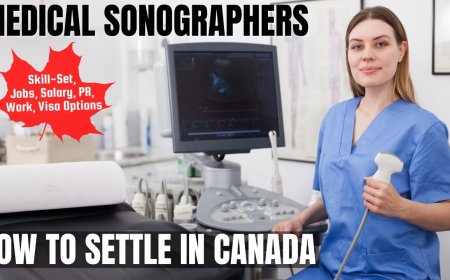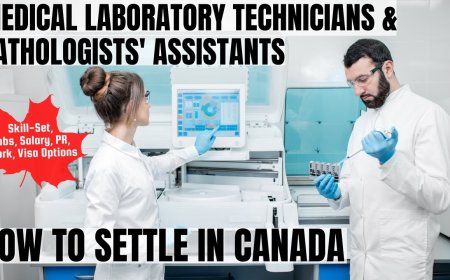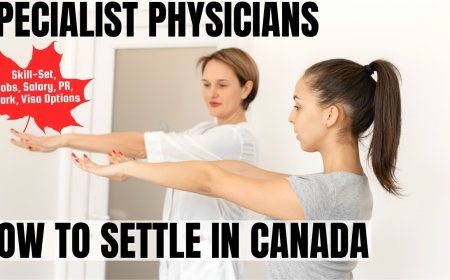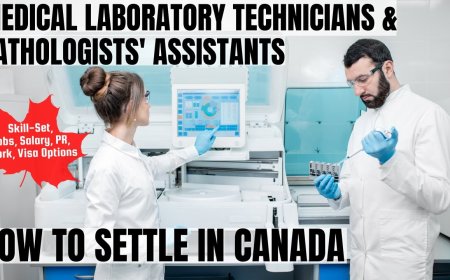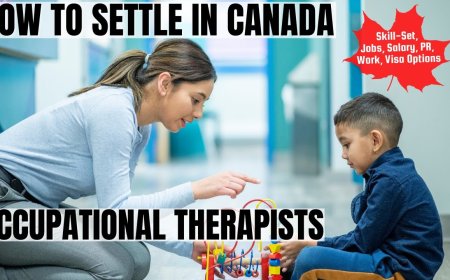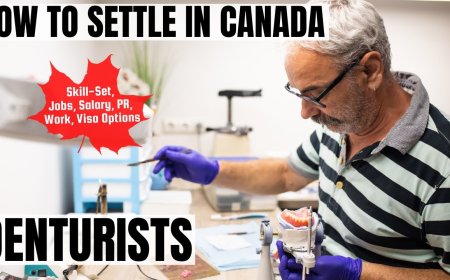Paramedical occupations Canada Immigration Pathways: Understanding Salaries, Work Roles, and Best Provinces
Welcome to the pathway to Canada immigration for skilled professionals and trade workers. This guide is specifically tailored for Paramedical occupations looking to work and settle in Canada, offering a deep dive into the essential aspects of immigration and employment in this field.
Introduction
Paramedical occupations play a crucial role in the Canadian healthcare system, providing essential care and support to patients in a variety of settings. In this article, we will focus on the career and immigration prospects for paramedical occupations in Canada, specifically those classified under the National Occupation Classification code NOC 3234. We will cover the profile description, main job duties, education and licence requirements, skills required, median age and retirements, salary details, as well as possible visa options for those looking to pursue a career in this field in Canada. Let's dive in and explore the opportunities available for paramedical professionals in the Great White North.
What is the Profile Description of a Paramedical occupations as per the Canadian National Occupation Classification (NOC) Standards?
Paramedical occupations involve providing emergency medical care to patients with injuries or medical conditions before transporting them to hospitals or other medical facilities for further treatment. These professionals work for private ambulance services, hospitals, fire departments, government agencies, and various private sector establishments. This unit group also includes paramedic supervisors who oversee the work of other paramedics.
What are the Main Job Duties of a Paramedical occupations in Canada?
- Assess and determine the extent of injuries or medical illnesses in trauma victims, respiratory disease patients, overdose victims, and others to provide appropriate emergency medical treatment.
- Administer pre-hospital emergency care, including oxygen therapy, CPR, spinal immobilization, bandaging, splinting, IV treatment, ventilation equipment, medication administration, and other advanced emergency treatments.
- Transport patients to medical facilities via air, land, or water, collaborating with dispatch centres, hospital staff, and emergency responders to ensure proper care and information sharing.
- Document and record patient medical information and treatment provided, as well as maintain emergency care equipment and supplies.
- Provide assistance to hospital personnel in medical treatment, training and supervising other workers in emergency medical care, and assisting with triage of emergency patients when necessary.
What are the Education, Certifications, and Licensing Requirements to Work as Paramedical occupations in Canada?
In order to pursue a career in paramedical occupations, individuals must successfully complete a one- to three-year paramedical or emergency medical technology program at a college, hospital, or other accredited institution. Additionally, all paramedical professionals must be licensed by a regulatory body in their respective province. Those who operate emergency vehicles must also hold the appropriate class of licence.
What Essential Skills are Required for Paramedical occupations to succeed in Canada?
To be successful in the profession of Paramedical occupations, individuals must possess essential skills such as the ability to assess the extent of injuries or illness of trauma victims to determine emergency medical treatment, administer pre-hospital emergency care, administer medications and provide advanced emergency treatments to patients, transport patients to hospitals or other medical facilities for further care, document and record the nature of injuries and treatment provided, assist hospital personnel with medical treatment if necessary, and maintain ambulances and emergency care equipment and supplies. These skills are crucial in providing timely and effective medical care in emergency situations, ensuring the well-being of patients and contributing to the overall healthcare system.
What is the Median Age and Retirement Age for Paramedical occupations in Canada?
The majority of skilled professionals working in Paramedical occupations have a median age of 38, indicating that many individuals enter the field at a relatively young age. However, the average retirement age for these professionals is 62, suggesting that they have a long and fulfilling career in this field. This indicates that paramedical professionals tend to dedicate several decades to their work, providing valuable healthcare services to their communities. Overall, this data highlights the commitment and passion these professionals have for their work in the healthcare industry.
How many job openings exist for Other Paramedical occupations in Canada, and what's their provincial distribution?
There are a total of 32 job openings for Paramedical occupations in Canada. Saskatchewan leads with the highest number of job openings at 11, followed by Newfoundland and Labrador with 8 job openings. Quebec comes in third with 6 job openings, while British Columbia has 4 job openings and Ontario has 3 job openings. Saskatchewan has the maximum job openings, while Ontario has the minimum job openings for this profile. With a range of job opportunities across different provinces, individuals interested in Paramedical occupations have various options to explore in Canada.
What is the hourly wage or salary of Paramedical occupations in different Provinces of Canada?
Paramedical occupations in Canada have varying wage ranges across different provinces. In British Columbia, paramedics can expect a high wage of $43.00, a median wage of $28.80, and a low wage of $19.00. Moving on to Alberta, the wages are slightly higher with a high of $48.08, a median of $34.00, and a low of $24.72. Saskatchewan follows with a high wage of $42.00, a median wage of $30.00, and a low wage of $18.00. In Manitoba, paramedics can earn a high of $43.00, a median of $33.80, and a low of $21.67. Ontario offers a high wage of $44.00, a median of $37.91, and a low of $26.00. Quebec presents a high wage of $35.24, a median of $29.00, and a low of $24.00. Moving on to the Maritimes, New Brunswick offers a high wage of $29.90, a median of $25.72, and a low of $23.89. Nova Scotia has a high wage of $36.06, a median of $25.63, and a low of $22.00. Prince Edward Island offers a high wage of $38.41, a median of $28.00, and a low of $17.00. Lastly, in Newfoundland and Labrador, paramedics can expect a high wage of $29.99, a median of $24.00, and a low of $18.50. Overall, wages for paramedical occupations in Canada vary by province, with some provinces offering higher wages compared to others.
What are the various visa options available for Paramedical occupations migrating to Canada?
Paramedical occupations are currently in high demand in Canada and are eligible for Category based Express Entry Invitation draws for Canadian PR under the Healthcare Occupations Category. The Express Entry Visa Category is a points-based system that ranks candidates based on factors such as age, language proficiency, education, and work experience. Paramedical occupations can also explore Provincial Nominee Programs, which allow provinces and territories to nominate individuals for PR based on their specific skill needs. Additionally, Employer Sponsored Work Visas are another option for paramedical professionals looking to work in Canada. It is important to note that there may be other Visa options currently open for paramedical occupations. To know more and discuss all the options in detail, individuals can book an appointment with our professionals.
Have Questions or Need Assistance?
If you have any queries or require assistance with your immigration plans, we're here to help. Our experienced immigration consultants are ready to provide personalized guidance tailored to your specific needs.
Don't hesitate to reach out and schedule an appointment today. Whether you're seeking clarification on immigration processes, exploring visa options, or need support with documentation, we're dedicated to assisting you every step of the way.
Book an appointment with our team to discuss your immigration goals and receive expert guidance for your journey to Canada.
What's Your Reaction?
 Like
0
Like
0
 Dislike
0
Dislike
0
 Love
0
Love
0
 Funny
0
Funny
0
 Angry
0
Angry
0
 Sad
0
Sad
0
 Wow
0
Wow
0





















































